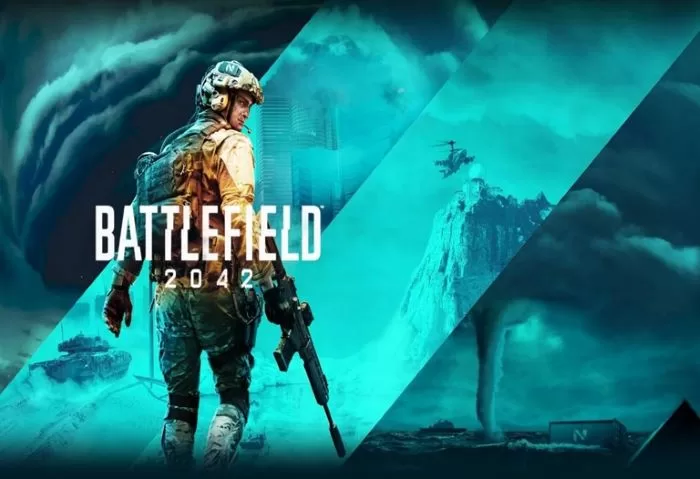Entertainment
Gaming Giants: How Top Brands Are Shaping Various Industries

Developing video games has gotten progressively intricate, and the expenses associated with making a game compatible with leading gaming platforms have escalated due to this heightened complexity. In the past, investing millions of dollars into production expenses was inconceivable. Still, nowadays, video games can incur expenditures ranging from tens to even hundreds of millions of dollars. This has elevated game development to the level of production and marketing expenses seen in Hollywood movies.
The video game industry is tremendously vast. Indeed, it surpasses the combined size of the movie and music industries, and its expansion shows no signs of slowing down. Despite the relative lack of recognition compared to the film and music sectors, the global gaming community comprises more than two billion individuals. This represents 26% of the worldwide population.
Unsurprisingly, firms desire a share of the profits. The gaming sector amassed a total income of £155 billion in 2020. Analysts forecast the business will earn over £260 billion in sales by 2025.
With that said, today, we’ll dive deeper into the biggest brands within the gaming world that are shaping various industries.
The Influence of DICE (EA Digital Illusions CE)
DICE, sometimes known as EA Digital Illusions CE, is a video game developer in Stockholm, Sweden. Established in 1992, the firm has functioned as a subsidiary of Electronic Arts since 2006. The company has launched several popular game series and also engages in the development of the Frostbite gaming engine through its Frostbite Labs branch.
EA (Electronic Arts), the company most renowned for dominating the sports genre of video games since the early nineties, purchased majority shares of DICE in 2006. Since then, the company has, under its new branding – DICE/EA Digital Illusions CE – spearheaded the first-person-shooter genre with groundbreaking titles like Battlefield, Star Wars: Battlefront, and Mirrors Edge.

Naughty Dog’s Contribution to Gaming
Contemporary gamers are familiar with Naughty Dog, similar to how cinema enthusiasts are acquainted with Spielberg and Scorsese, and this is not without justification. The geniuses at Naughty Dog produce some of the gaming industry’s most exceptional titles, notably pushing the limits of visual quality and narrative innovation.
During the late 1990s, the studio gained recognition primarily for Crash Bandicoot. However, since becoming part of Sony’s first-party lineup, Naughty Dog’s focus on developing top-tier mascot platformers like Jak & Daxter has transformed into creating highly immersive and visually impressive story-driven action games. This evolution is evident in their current generation titles, including the Uncharted trilogy and The Last of Us.
Nintendo: Pioneering Innovations and Family Gaming
Few names are significant in computer gaming and evoke as much sentimentality as Nintendo. Over the course of many years, the Japanese game firm has played a fundamental role in the industry, influencing how we engage, interact, and encounter virtual realities.
Nintendo unveiled arcade games such as “Donkey Kong” and “Mario Bros.” throughout the late 1970s and 1980s. These games established the groundwork for some of Nintendo’s most renowned characters and brands. Mario, the plumber with a moustache, swiftly became strongly associated with Nintendo and continues to be a highly adored figure in the present time.
Nintendo has progressed into the contemporary period with the introduction of the Nintendo Switch. The hybrid console, capable of functioning as both a portable device and a conventional gaming console, has achieved tremendous popularity. Nintendo has revitalised well-established series such as “The Legend of Zelda” with the game “Breath of the Wild” and introduced inventive gameplay with “Animal Crossing: New Horizons.”
Valve Corporation: Revolutionising PC Gaming & Family-Friendly Content
If you engage in PC gaming, you likely utilise the Steam platform to play your games.
Valve’s digital game distribution network, Steam, has evolved from a patch delivery system to the dominant method of purchasing PC games for millions of customers since its inception on September 12, 2003.
Valve initially operated as a game creator, transitioned into a distributor, and currently functions as a hardware maker. Increasingly, it is becoming apparent that it is a direct rival to manufacturers of gaming consoles and possesses an extensive collection of games to utilise. Regardless of what Steam evolves into, its tumultuous past has permanently altered how we engage in gaming.
Rockstar Games: Redefining Open-World Gaming
Rockstar Games has had a profound influence on the gaming industry. The business has developed highly popular and well-praised games like the Grand Theft Auto series and Red Dead Redemption.
DMA Design launched its inaugural game, Grand Theft Auto, in 1997. Subsequently, DMA Designs was bought by Rockstar Games, marking a significant turning point in their trajectory. Grand Theft Auto succeeded immediately due to its ground breaking gameplay, expansive open-world setting, and provocative themes.
Grand Theft Auto V, the latest instalment in the series, was launched in 2013 and has achieved a global sales figure of over 175 million units. The game occurs in a fictitious metropolis named Los Santos, modelled after Los Angeles. Players have the freedom to navigate the city at will, accomplishing goals and creating havoc in the process. The interactions inside this expansive virtual environment are exceptionally distinctive, to the extent that even excellent online gambling brands would not have anticipated the inclusion of a fully immersive, interactive casino within the GTA universe. Rockstar Games has not only launched the popular Grand Theft Auto series but also achieved success with other properties such as Red Dead Redemption, Max Payne, and Bully.
The eagerly awaited sequel to the game, GTA 6, has been widely anticipated by fans for a decade. It was recently unveiled with a scheduled release date in 2025, generating unprecedented excitement as the most anticipated title in video gaming history.
Blizzard Entertainment: Leading in MMORPG and eSports
Blizzard Entertainment has been a leading force in the gaming business, renowned for its engaging narratives, immersive gameplay experiences, and commitment to fostering a strong community.
Blizzard Entertainment has established a prominent position in gaming since its establishment in 1991. Blizzard is renowned for producing top-notch games prioritising immersive narratives and vast environments. They have developed several legendary franchises that have endured throughout the years.
Blizzard’s titles, such as World of Warcraft, Diablo, StarCraft, and Overwatch, have significantly affected the video game industry. The firm is renowned for emphasising refined gameplay, immersive environments, and comprehensive post-launch assistance. Their emphasis on soliciting input from the community and achieving equilibrium has generated vibrant player communities.
Sony Interactive: Shaping Console Gaming and VR
PlayStation, sometimes abbreviated as PS, is a well-recognised and influential brand in the gaming industry, renowned for its innovative game systems and substantial influence on popular culture.
Following its initial launch in 1994, the PS1 has endured through five subsequent iterations of game systems, culminating in the release of its most recent version, the PS5, in 2020. Aside from prominent titles like Spiderman and God Of War, they have also played a pivotal role in transforming the gaming experience via the introduction of the PlayStation VR.
The evolution of PlayStation has shown Sony’s commitment to pushing the limits of game technology, continually providing groundbreaking hardware and unforgettable gaming experiences to millions of players. Amidst the ongoing transformation of the gaming industry, the PlayStation’s enduring influence stands out as a prominent symbol of excellence in interactive entertainment.
Microsoft Xbox: Integrating Gaming with Technology
The trajectory of Xbox appears markedly divergent from its preceding two decades. While Nintendo and Sony have prioritised exclusive console games and jealously protected intellectual property, Microsoft has pursued a daring and ambitious multi-platform, subscription-based strategy that has significantly disrupted the gaming industry.
Microsoft’s recent triumph is shown by the very successful release of Forza Horizon 5 this month. According to Spencer, it stands as the most formidable launch in the history of Xbox Game Studios, attracting over 4.5 million players in under a week. The game’s availability for Xbox Game Pass users extends to several platforms, including the Xbox Series X/S, previous Xbox One consoles, mobile phones through cloud streaming, and Windows PCs.
In the future, the company’s most successful releases are expected to resemble the debut of Forza Horizon 5. The game’s triumph will be determined not by its sales figures but by the number of individuals who engage with it, independent of the device they use. Twenty years ago, Microsoft desired to enter the console industry and was prepared to invest billions of dollars to secure a position alongside Nintendo and Sony. Currently, the Xbox platform is revolutionising the gaming business, and it may need many years for other companies in the sector to match its advancements.


















































